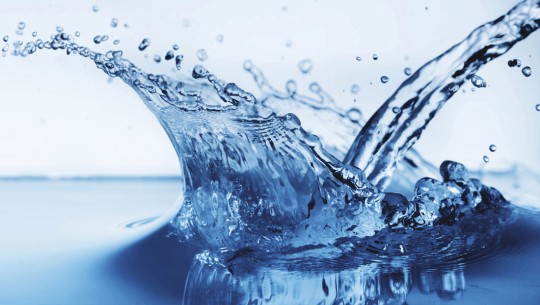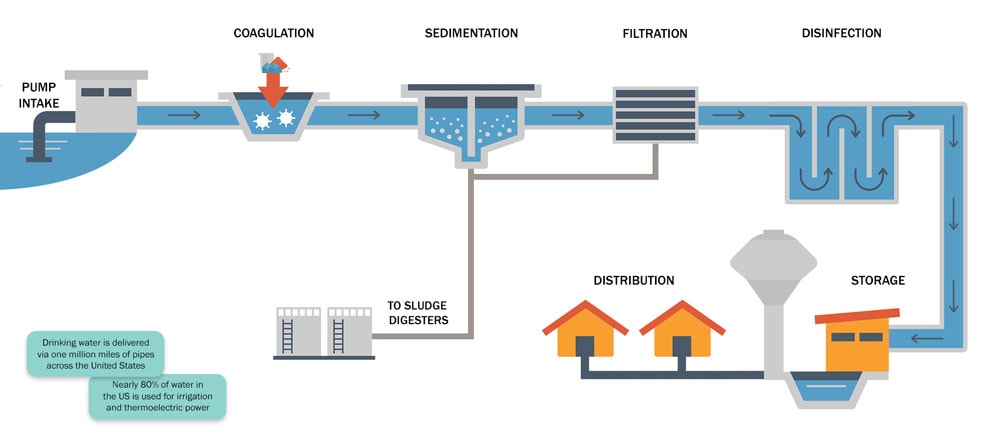Discovering Water Technology Startups: Just How They Reinvent Sustainable Solutions
Water Technology start-ups are becoming critical players in the pursuit for sustainable services to international water concerns. These business leverage ingenious modern technologies to improve water efficiency and monitoring. Their payments deal with pushing challenges such as scarcity and contamination. Despite their potential, they encounter different barriers that could influence their success. Comprehending these dynamics drops light on the future of water sustainability and the role these start-ups might play in shaping it.
The Value of Water Technology in Today's World
As international water scarcity magnifies, the importance of water Technology becomes significantly apparent. Water Technology plays an essential function in addressing the difficulties posed by enhancing and lessening freshwater resources need. It encompasses a broad array of developments, consisting of advanced filtering systems, wastewater therapy innovations, and clever watering solutions. These improvements not only enhance the effectiveness of water usage but additionally promote sustainable practices throughout various markets, including agriculture, sector, and urban advancement.
The importance of water Technology extends beyond resource management. It promotes strength versus environment adjustment influences, such as droughts and floodings, by supplying flexible options for water preservation and administration. Furthermore, it sustains public health and wellness by making certain accessibility to tidy and secure drinking water. As the world deals with growing water-related challenges, the integration of cutting-edge water technologies is important for cultivating lasting advancement and protecting water availability for future generations.
Innovative Solutions From Water Technology Startups
While typical strategies to water monitoring have actually offered their function, a new wave of water technology start-ups is reinventing the market with cutting-edge options (Water Technology Startups). These companies utilize cutting-edge technologies to address pressing water issues, such as scarcity, contamination, and ineffective distribution. Many start-ups utilize expert system and equipment discovering to optimize water use and predict demand, causing more lasting practices
Furthermore, a number of companies concentrate on developing sophisticated filtration systems that get rid of contaminants and make water secure for usage. Others discover decentralized water treatment modern technologies, enabling areas to manage their water sources much more effectively. Some start-ups are pioneering smart watering services that reduce water waste in farming, advertising environmental conservation.
Instance Studies: Effective Water Technology Startups
Many water Technology start-ups have actually arised as leaders in dealing with global water obstacles with cutting-edge strategies. One remarkable example is Xylem, which concentrates on water analytics and clever facilities to maximize water usage and reduce waste. Their options have been implemented in various municipalities, demonstrating considerable renovations in water management efficiency.
An additional effective startup, No Mass Water, has actually created solar-powered hydropanels that draw out water vapor from the air, providing sustainable drinking water in deserts. Water Technology Startups. This Technology has been released in a number of nations, guaranteeing communities have access to clean water
AquaVenture Holdings operates a varied portfolio of water-as-a-service solutions, resolving water shortage via desalination and wastewater therapy. Their tasks have actually proven necessary in regions encountering severe water shortages, showcasing the capacity of cutting-edge water technologies to develop long lasting, positive influences. These study highlight the transformative capacity of start-ups in the water Technology industry.
The Duty of Smart Technology in Water Management
Smart Technology plays a necessary function in modern water management by leveraging IoT applications to optimize source usage. Information analytics boosts performance by providing actionable insights, while remote surveillance options enable real-time oversight of water supply. Together, these technologies change exactly how water is handled, promoting sustainability and operational performance.
IoT Applications in Water
As water deficiency and management difficulties magnify worldwide, the integration of Internet of Things (IoT) applications has become a pivotal service in optimizing water resources. IoT Technology helps with real-time surveillance and evaluation of water systems, making it possible for much more reliable usage and administration. Sensing units deployed in different water facilities can track high quality, flow rates, and leakage, supplying valuable data to stakeholders. This data encourages utilities and customers to make enlightened choices, decreasing waste and enhancing preservation initiatives. Furthermore, smart irrigation systems use IoT to enhance water distribution for farming, guaranteeing that crops get the appropriate amount of water at the right time. Generally, IoT applications are changing standard water monitoring techniques, fostering sustainability and resilience in water resource systems.
Information Analytics for Performance
Using information analytics is necessary for boosting performance in water administration. Water Technology start-ups are progressively making use of innovative analytics to enhance source allowance and minimize waste. By examining information from different sources, these start-ups can identify patterns and trends that inform far better decision-making. Anticipating analytics can forecast water demand, permitting energies to change supply accordingly, thereby reducing excess and shortages. Additionally, real-time information processing enables the prompt discovery of leakages and inefficiencies within distribution systems, significantly decreasing operational prices. Data-driven understandings equip stakeholders to implement targeted preservation methods, fostering lasting practices. Basically, integrating information analytics into water monitoring not only simplifies operations yet likewise advertises long-lasting sustainability in water source usage.
Remote Tracking Solutions
While traditional water monitoring systems commonly have problem with inadequacies, remote monitoring options are transforming exactly how water resources are managed. These ingenious modern technologies enable real-time information collection and evaluation, allowing stakeholders to keep an eye on water quality, circulation prices, and usage patterns from afar. Using sensing units and IoT devices, remote tracking gives immediate insights that assist in positive decision-making. This change not just enhances functional effectiveness but likewise advertises sustainability by reducing water waste and maximizing resource allotment. Furthermore, remote surveillance systems can identify potential issues before they intensify, consequently decreasing the risk of contamination or infrastructure failure. As water Technology startups remain to establish these remedies, the sector is positioned for significant improvements in lasting water administration methods.
Obstacles Dealing With Water Technology Startups
Water Technology start-ups run into significant challenges that can hinder their growth and success. Trick concerns consist of securing ample financing, steering with complicated regulative atmospheres, and competing in a crowded marketplace. These obstacles require strategic preparation and technology to get over.
Financing and Financial Investment Obstacles
Although development in water Technology holds immense possibility for dealing with global obstacles, start-ups in this industry typically face significant financing and investment hurdles. Several financiers continue to be mindful, viewing the water sector as risky because of its complex governing landscape and long advancement timelines. In addition, startups usually struggle to demonstrate prompt productivity, which can discourage potential backers. Traditional endeavor capital might overlook water innovation, favoring markets with quicker returns, such as technology or consumer goods. Additionally, securing gives and federal government funding can be lengthy and affordable, further making complex economic stability. Water Technology Startups. Therefore, numerous cutting-edge water Technology start-ups find themselves in a precarious setting, needing innovative financing methods to browse these financial barriers and accomplish their objectives
Regulatory Compliance Issues
Guiding governing compliance is a considerable obstacle for startups in the water Technology industry, as they need to face a myriad of neighborhood, national, and global regulations. These policies usually encompass water quality standards, environmental management legislations, and security procedures, which can differ extensively throughout territories. Start-ups might find it challenging to navigate this complicated landscape, particularly when scaling procedures or entering new markets. The costs connected with compliance can be substantial, drawing away sources away from development and item growth. Additionally, delays in obtaining necessary permits or accreditations can impede growth and market entry. Consequently, a durable understanding of governing structures is necessary for these start-ups to ensure sustainable procedures and stay clear of prospective legal repercussions.
Market Competition Characteristics
As water Technology startups emerge in an affordable landscape, they deal with various difficulties that can impede their development and technology. Developed firms commonly control the market, leveraging resources and experience to preserve their positions. Start-ups battle with limited funding, which restricts r & d capacities, making it difficult to contend on Technology and prices. Additionally, the rapidly evolving nature of water innovations demands consistent adaptation, more straining startup resources. Regulatory hurdles can complicate market access, as compliance with environmental requirements is critical yet expensive. Drawing in proficient skill in a niche field provides one more barrier, as larger companies might use even more attractive employment plans. These aspects develop an intricate atmosphere for water Technology startups intending to prosper.
The Future of Water Technology and Sustainability

The future of water Technology will likely concentrate on integrating artificial knowledge and data analytics to maximize water distribution and usage patterns. By utilizing real-time information, business can predict lacks and handle resources a lot more properly. In addition, sustainable techniques will become a keystone of the industry, motivating round economic climates where water is reused and treated. Inevitably, the continued development of water Technology will certainly be essential in developing resilient frameworks efficient in satisfying the difficulties presented by environment adjustment and populace development while promoting environmental stewardship.
Often Asked Concerns
What Are the Secret Metrics for Assessing Water Technology Startups?
Trick metrics for reviewing water Technology start-ups include market capacity, scalability, consumer procurement expenses, income development, modern technology advancement, governing compliance, ecological effect, affordable benefit, and group know-how, all crucial for figuring out long-term practicality and success.
How Can People Assistance Water Technology Innovations?
Individuals can sustain water Technology advancements by buying startups, promoting for plan adjustments, joining community efforts, sharing knowledge about sustainable practices, and advertising awareness of water issues with social media sites and neighborhood events.
What Are Usual Funding Resources for Water Tech Startups?
Usual financing sources for water tech startups consist of endeavor capital, federal government gives, crowdfunding systems, angel investors, and company partnerships. These financial methods assist promote development and growth in sustainable water monitoring technologies.

Which Industries Advantage Many From Water Technology Advancements?
Industries such as farming, energy, production, and local solutions profit considerably from water Technology developments. These technologies improve water efficiency, minimize prices, and advertise lasting practices, inevitably contributing to environmental conservation and source management.
Are There Any Type Of Regulative Difficulties Certain to Water Innovation?
Yes, water website Technology encounters regulative obstacles, consisting of compliance with ecological requirements, permitting procedures, and varying regional regulations. These intricacies can hinder advancement and slow down the implementation of brand-new innovations in the water management market.
Water Technology start-ups are arising as essential players in the mission for sustainable services to international water concerns. As worldwide water shortage intensifies, the importance of water Technology becomes significantly apparent. Others check out decentralized water therapy technologies, allowing communities to manage their water sources extra successfully. Another successful startup, Absolutely no Mass Water, has developed solar-powered hydropanels that draw out water vapor from the air, giving lasting alcohol consumption water in dry areas. Their projects have proven vital in regions encountering serious water shortages, showcasing the potential of cutting-edge water modern technologies to produce long lasting, positive influences.